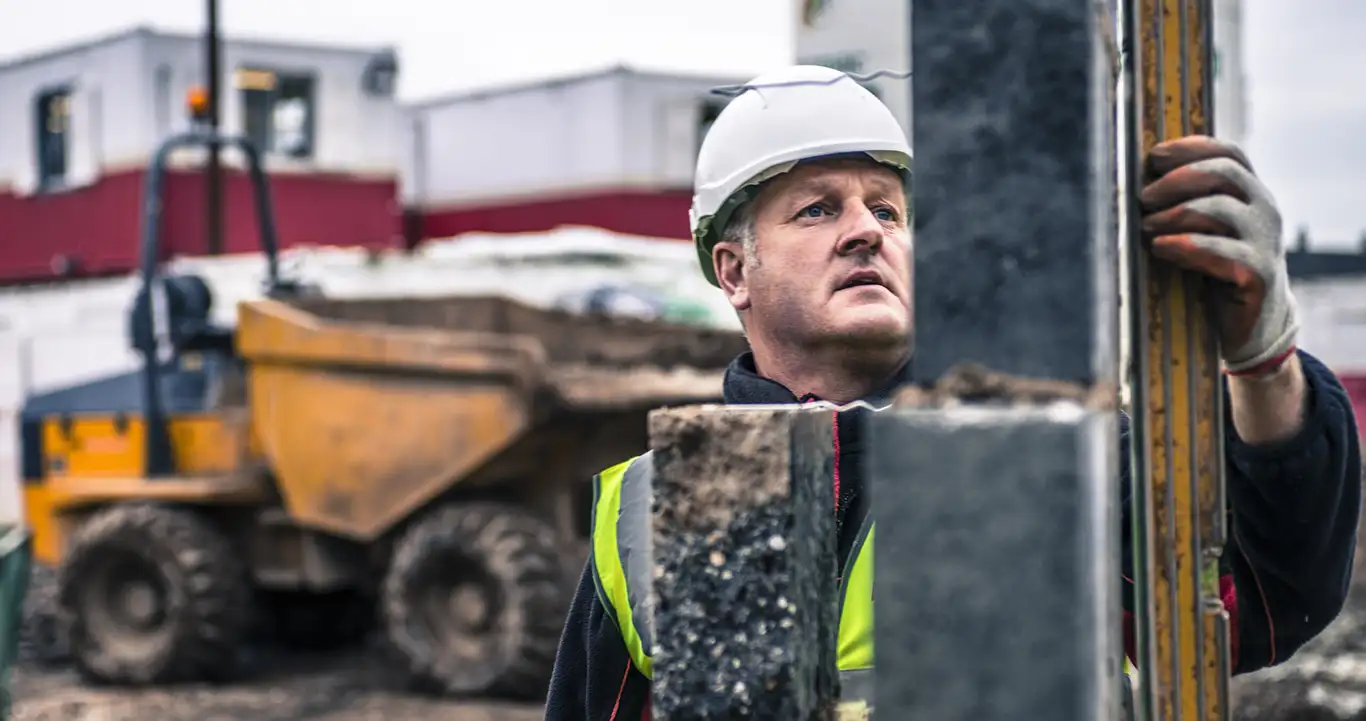Mental Health in the Construction Industry (2024 Update)

The construction industry is one of the most demanding and challenging industries in the world. The work is physically demanding, often involves working at heights or in hazardous conditions, and typically requires employees to work long hours. But while many are aware of the physical challenges that come with working in construction, the mental health challenges are often overlooked.
Given that the number of deaths from suicide is 5 times the number of deaths from workplace accidents and injuries, it’s clear we need to pay more attention to the silent crisis plaguing the industry.
Understanding the Importance of Mental Health in ConstructionConstruction workers face a range of unique stressors that can impact their mental health. Stressors such as job insecurity, long hours, and the pressure to meet deadlines can all lead to chronic stress and burnout. Additionally, because many workers in the construction industry are men, they may be less likely to seek help for mental health issues due to the stigma surrounding mental health.
- Statistics Canada estimates that 33 per cent of workers in the construction industry reported poor mental health.
Poor mental health not only affects an individual’s wellbeing but can also have negative impacts on productivity and safety.
Employees who are experiencing mental health issues may struggle to focus on their work, have difficulty making decisions, or experience fatigue, which can lead to errors or safety hazards.
- ISHN: “When employees don’t get the support they need to navigate their mental health challenges, they become a safety hazard.”
It is important to note that mental health issues can affect anyone, regardless of their job or industry. However, the unique stressors faced by construction workers can make them particularly vulnerable to mental health issues.
Unique Stressors Faced by Construction Workers
Construction workers face a range of unique stressors that can impact their mental health, like:
- Work-related injuries
- Exposure to hazardous materials
- High pressure work environments
- Long periods of time away from home and family
These stressors can lead to increased rates of depression and anxiety. A meta analysis of construction mental health studies shows substantial mental distress impacted up to 50% of construction workers.
The Benefits of Prioritizing Mental Health in Construction
Prioritizing mental health in the construction industry can lead to a range of benefits, including improved productivity, better safety outcomes, and a reduction in absenteeism and turnover.
There are a number of steps that organizations can take to prioritize mental health in the construction industry, including:
- Providing access to mental health resources and support,
- Creating a culture of open communication and support, and
- Implementing policies and procedures that prioritize the wellbeing of workers.
Ultimately, prioritizing mental health in the construction industry is not just the right thing to do from a moral standpoint, but it is also good for business. According to the World Economic Forum, implementing mental health initiatives can reduce absenteeism rates by 25% and decrease presenteeism by 40%.
Top 3 Mental Health Issues in Construction WorkersIn order to address mental health issues in the construction industry, it’s first important to understand what the most common issues are. The following are the top 3 most common mental health issues experienced by construction workers:
Depression and Anxiety
Depression and anxiety are both common mental health issues experienced by construction workers. These can be caused by a range of factors, including stress related to work, family life or finances. Symptoms can include feelings of hopelessness and despair, increased irritability and difficulty sleeping.
- Construction workers are six to seven times more likely to die of an overdose than workers in other professions, with opioids being the leading cause of overdose. (CPWR, National Vital Statistics Reports)
The impact depression and anxiety can have on a construction worker’s ability to perform their job is significant. These mental health issues can lead to decreased productivity, increased absenteeism, and a higher risk of workplace accidents. In addition, untreated depression and anxiety can lead to more serious mental health issues down the line.
- The suicide rate for males in construction is 75% higher than the rate in the general population. (CDC)
Construction workers are at an increased risk of developing substance abuse and addiction due to the physical demands of the industry, workplace injuries, work-related stress, and the availability of drugs and alcohol. Substance abuse can lead to a range of negative impacts, including physical health issues, poor workplace performance, and accidents.
It’s important for employers to provide resources and support for workers who may be struggling with substance abuse or addiction. This can include access to counseling services, employee assistance programs, and substance abuse treatment programs. By addressing substance abuse and addiction early on, employers can help prevent more serious issues from developing down the line.
- Cost to employers of construction workers with untreated Substance Use Disorders is $8,591/yr (due to turnover, absenteeism, and health care costs). (NORC/NSC)
Burnout and Chronic Stress
Burnout and chronic stress are common issues in many industries, but they are particularly prevalent in construction. Long work hours, tight deadlines, and physically demanding work can all contribute to burnout and chronic stress. Symptoms can include exhaustion, feelings of detachment or cynicism, and a decline in work performance.
- More than 80% of construction workers report experiencing stress at work (EHS Today)
Employers can help prevent burnout and chronic stress by implementing policies and practices that promote work-life balance, such as flexible work schedules and paid time off. In addition, providing resources and support for workers who may be struggling with burnout or chronic stress, such as counseling services or stress management training, can help prevent more serious mental health issues from developing down the line.
By addressing mental health issues early on, employers can help prevent more serious issues from developing down the line and create a healthier, more productive workplace for everyone.
Creating a Supportive Work Environment
Creating a supportive work environment is crucial to promoting mental health in the construction industry. The construction industry is known for its demanding and high-pressure work environment, which can take a toll on workers’ mental health. However, with the right strategies in place, employers can create a work environment that supports workers’ mental health and well-being.
Here are five places you can start building a better environment at work:
- Toolbox talks on mental health issues can provide essential information about early warning signs. They also help to normalize openly discussing mental health, and categorize it as a workplace hazard instead of a personal failing.
- Mental health first aid training teaches employees ways to respond to mental health, substance abuse, or suicide-related crises.
- Lunch and learn sessions on topics like how to reduce stress, what addiction looks like, and positive coping mechanisms.
- Reduce access to lethal means.
- Implement a mental health buddy system. Having a designated person to talk to, and check in on, helps reduce some of the barriers to vulnerability.
- 3 Strategies for Reducing Stress and Improving Mental Health
While creating a supportive work environment is important, there are also strategies that individual workers can use to reduce stress and improve their mental health. These include:
- Encouraging regular breaks and time off (vacations)
- Encouraging open communication and dialogue (regular check-ins, peer support programs)
- Promoting a healthy work-life balance (telecommuting, flexible hours, activities)
- Offering stress management workshops, resources, and training (mindfulness training, yoga classes, counseling services, employee assistance programs)
In Conclusion…
The construction industry is a demanding and challenging industry that can take a toll on workers’ mental health. Companies can – and should – establish a mental health policy that outlines the expectations and procedures for supporting the mental health of workers.
For example, the policy could include regular mental health check-ins with workers, flexible work arrangements to accommodate workers’ mental health needs, and access to mental health resources and support. The policy should also outline the procedures for addressing mental health concerns and providing support to workers who may be struggling.
Employers can also provide mental health resources for employees, such as access to counseling or employee assistance programs. These resources can help workers to manage stress, anxiety, and other mental health issues. Additionally, training can be provided to ensure workers are aware of mental health issues and how to support colleagues who may be struggling.
By prioritizing mental health and creating a supportive work environment, employers can promote greater wellbeing and improve outcomes for both workers and the organization as a whole.
Source: Corfix
London Build is the UK's largest and leading construction show. Officially awarded the Best Trade Show in the UK. London Build is co-located with the London Build Fire & Security Expo. Featuring 450+ Exhibitors, 700+ Speakers across 12 CPD Conference Stages, 35,000+ Registered Attendees, Networking Parties, Meet the Buyers, DJs, entertainment and so much more.



